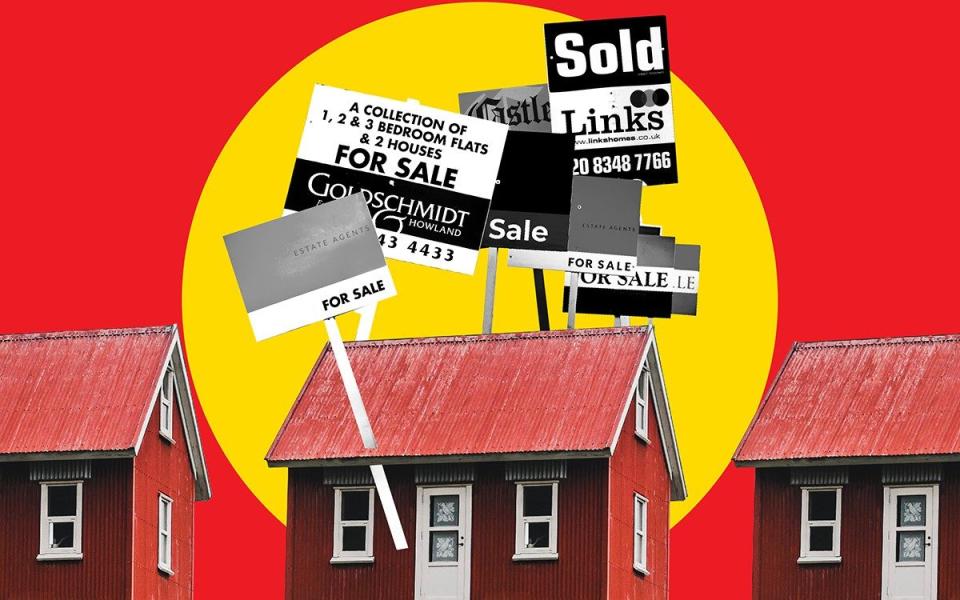Landlords will 'rush' to sell after tax crackdown

Investors, second-home owners and landlords will have to pay thousands of pounds more tax when the tax-exempt allowance on capital gains is reduced.
The crackdown on holiday home owners and landlords is likely to initiate a race to sell up before the thresholds start to fall next year, analysts warned.
Stock market investors will also be liable for more tax when they sell shares not held in an Isa. The point at which capital gains are taxed will be cut from £12,300 to £6,000 in April and then to £3,000 from April 2024.
The overhaul means that, ultimately, second-property owners will pay £2,600 more tax.
Chris Etherington, of RSM accountants, said: "It could result in a rush of people looking to accelerate sales of assets to benefit from the current exemption levels.
"Any individuals with assets standing at a modest gain should give serious consideration to accelerating a sale before the exemption is sliced."
The change means that anyone selling property that is not their main residence will have to pay thousands of pounds in extra tax on their profits - and thousands more property owners will have to pay the tax.
A second-home owner selling up after April 2024 will have to pay an extra £2,604 in capital gains tax, assuming their taxable profits exceed £12,300.
If they sell up in the 2023-24 tax year, they will have to pay an extra £1,764 compared with today.
These calculations are based on higher-rate taxpayers. Capital gains tax is paid on the sale profits on second homes and buy-to-let properties. On residential property, higher-rate taxpayers are charged at 28 per cent, while basic-rate taxpayers pay 18 per cent.
For a basic-rate taxpayer, the cuts in the tax-free allowance mean a second home owner will have to pay an extra £1,134 in the next tax year, or an extra £1,674 after April 2024.
Hundreds of thousands of people will be affected. Wealth manager Quilter said 323,000 people paid capital gains tax in the most recent tax year, and would be liable to pay more in tax once the allowance is cut.
These calculations do not account for the deduction of allowable costs, such as improvement works, over the course of ownership.
Capital gains tax on the disposal of business assets or shares is taxed at 20 per cent for higher-rate taxpayers. The cut in threshold from April 2024 means investors selling these taxable assets will face an extra charge of £1,860.
But Jeremy Hunt, the Chancellor, stopped short of bringing capital gains tax rates in line with income tax rates - a recommendation made by the Office of Tax Simplification in 2020 that would have triggered far larger jumps in bills.
Tom Bill, of Knight Frank estate agents, said that stopping short of bringing capital gains tax in line with income tax rates had prevented a mass fall in demand from property investors.
But the change in the tax-free allowance will hit owners of cheaper properties, because the tax-free allowance would have made up a larger share of their taxable gains, Mr Bill said. He added: "It will disproportionately affect landlords of lower-value properties."
Paul Barham, of tax firm Mazars, said many middle-class savers with modest portfolios would be forced to pay the tax for the first time.
He said: "The capital gains tax annual exemption allows for those who make modest gains on investments to do so without losing any of the growth realised to tax.
"The announcement of a gradual reduction in this allowance from £12,300 to £6,000 and then to £3,000 will mean that even the most modest of gains could become taxable.
"Those with much more sizable investment portfolios, and existing business owners, will also be affected but the marginal impact will be more keenly felt by those with smaller investment portfolios."

 Yahoo Finance
Yahoo Finance 